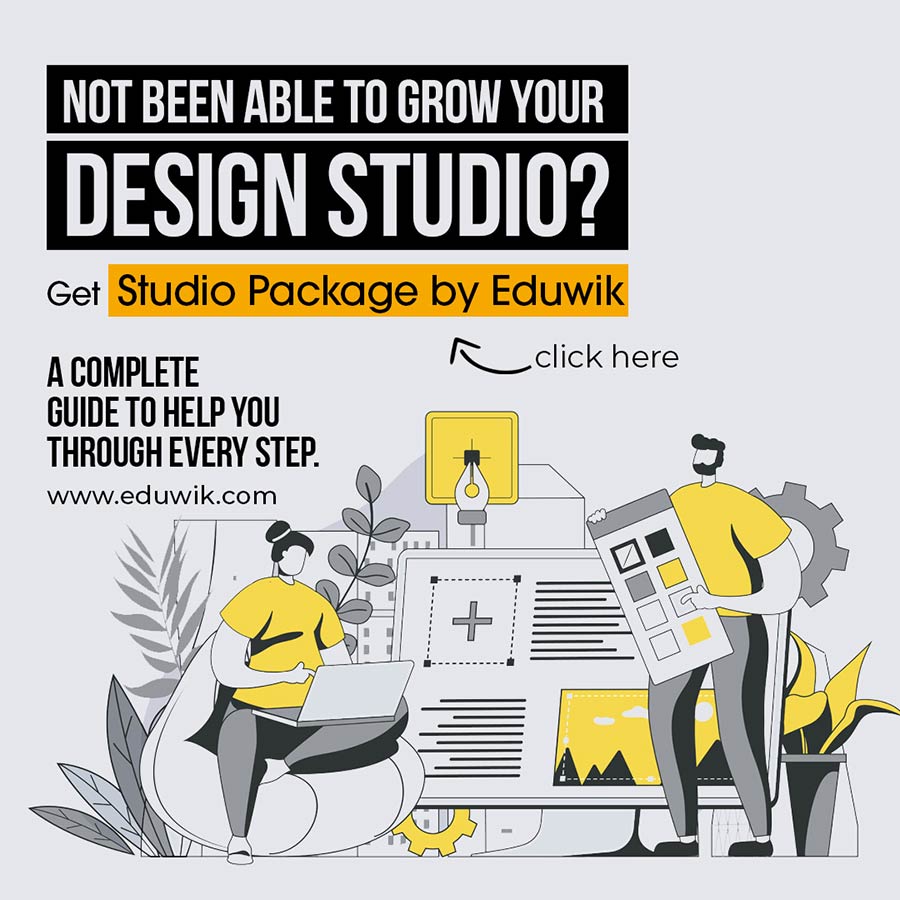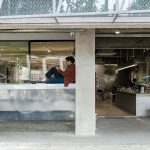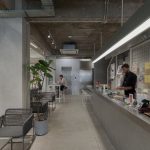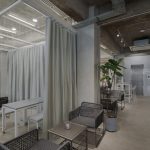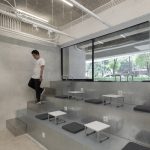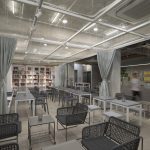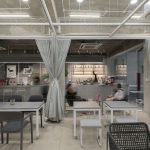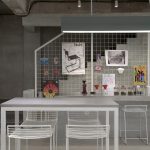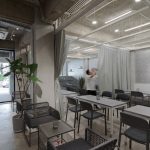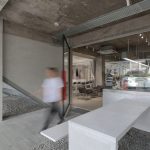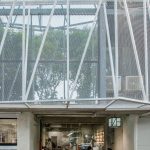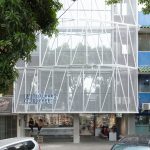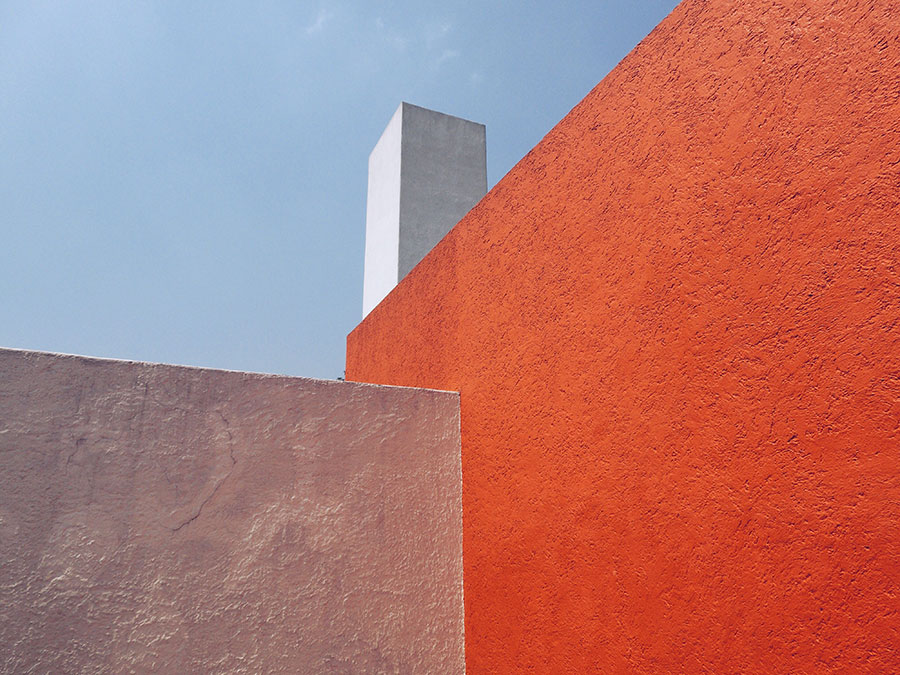Tujuhari coffee is a coffee shop and multipurpose space located in the south of Jakarta. Tujuhari brand itself promotes a productive and collaborative culture in their coffee shop. This pilot project is designed to be more than just a coffee shop but an open platform for any programs related to work, art and culture; a social condenser in a mini scale, where programs overlap and intersects in the same space. People with different backgrounds, interests and activities coexist in the same environment which drives social interaction.
Location: Jakarta, Indonesia
Status: Completed
Year: 2019
Program: Coffee shop and multifunction space – 150 sqm
Designer: STUDIO KOTA (www.studiokota.com)
Principal designer: Erick Kristanto
Team: Wendy Sudibyo, Farrel
Photographer: Kafin Noe’man Studio , Peter Sutedja
Client: Tujuhari
Contractor: Komune, Yoga Makutaraditya , Trifoli
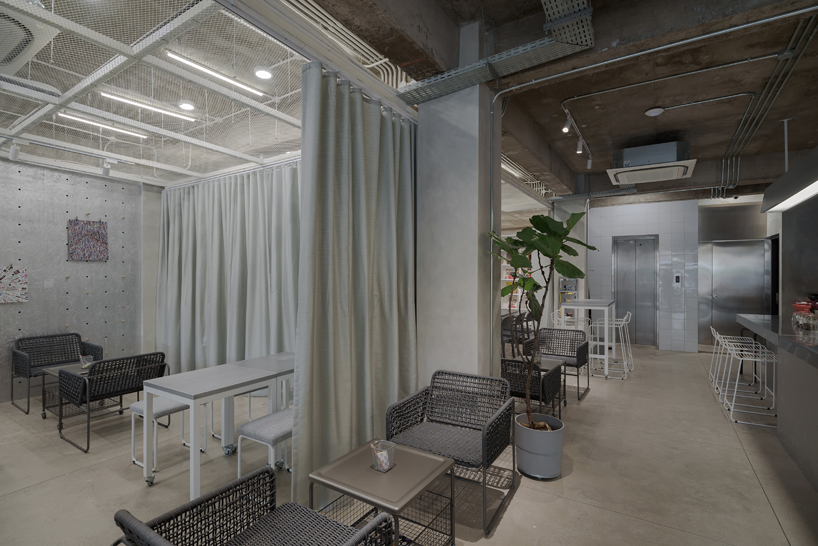 Ground floor of a shop house was chosen to house the first Tujuhari coffee shop. The space was previously functioned as a lobby for a law office. The existing space consists of two parts, an open rentable space and the other half is mostly circulation and service space. The architect decided to go with the idea of keeping the space division as is: two separate space. One chamber with more traffic is allocated for the cafe while the other chamber, more spacious one is for multipurpose space called “productivity chamber.”
Ground floor of a shop house was chosen to house the first Tujuhari coffee shop. The space was previously functioned as a lobby for a law office. The existing space consists of two parts, an open rentable space and the other half is mostly circulation and service space. The architect decided to go with the idea of keeping the space division as is: two separate space. One chamber with more traffic is allocated for the cafe while the other chamber, more spacious one is for multipurpose space called “productivity chamber.”
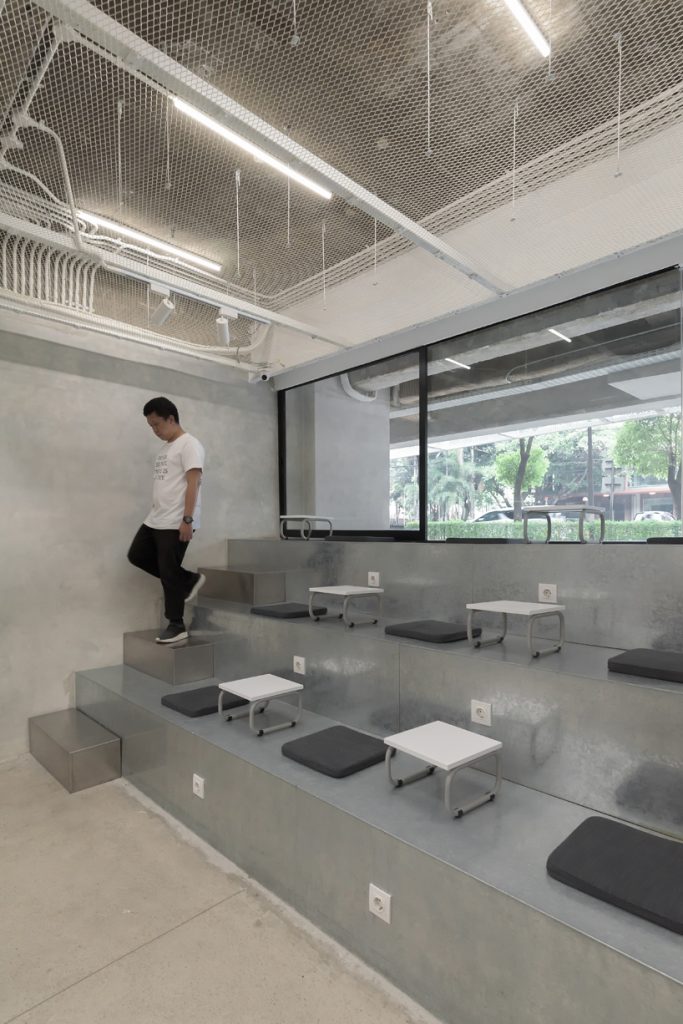
The productivity chamber offers a flexible and multi orientation space for different mix of programs. This space consists of a mini amphitheatre, working space, artist feature wall, small performing stage, vinyl station and a bookshop. Various happenings from movie screening night, book launching, music party, startup pitch meeting, art exhibition and charity event can take place in the productivity chamber. All furniture in the productivity chamber are lightweight, movable and stackable. With the mobility of the furniture it is possible to see different seating arrangement every single day following the event happening that day.
Sometimes a tangible space divider is required for particular events. Therefore, curtains are installed to help compartmentalize the chamber to ease space management. Expanded metal mesh drop ceiling is introduced in the productivity chamber to differentiate the space experience to the adjacent cafe chamber. The ceiling is also used to diffuse the light and to cover up the utilities.
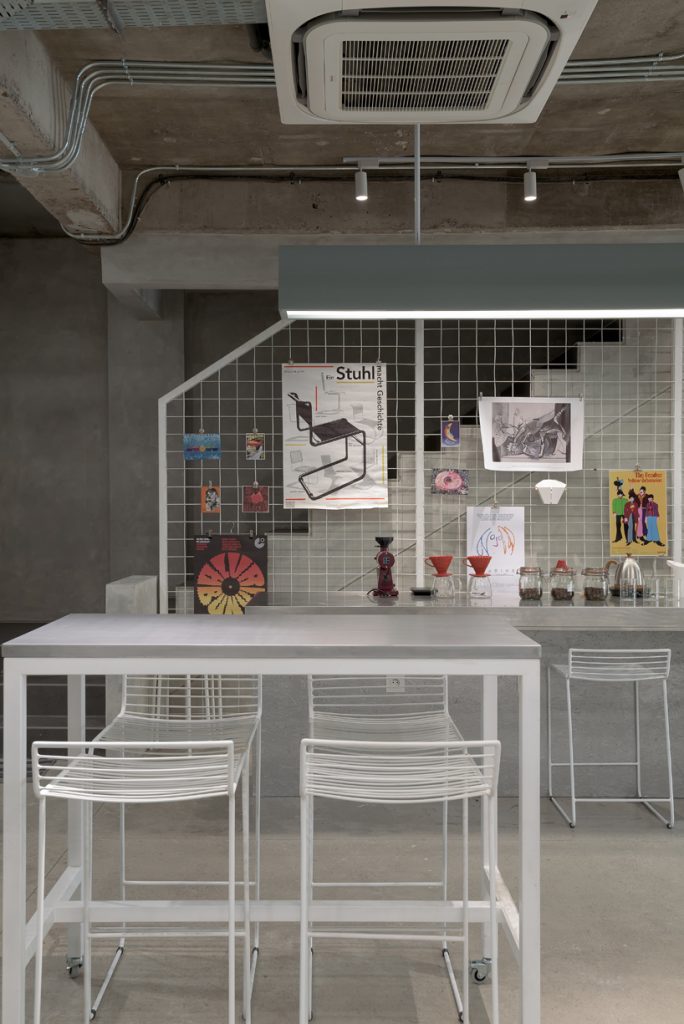
Materials chosen for the project fall into monochromatic color spectrum. Practical and durable materials such as concrete, stainless steel, galvanized metal and silver painted wooden board are used to give a neutral and subtle tone. White ceramic tile and cement wall are also opted for to supplement the mood. Red color which is Tujuhari brand color is used to highlight some features on this project such as metal plate door handle and elevator wall.
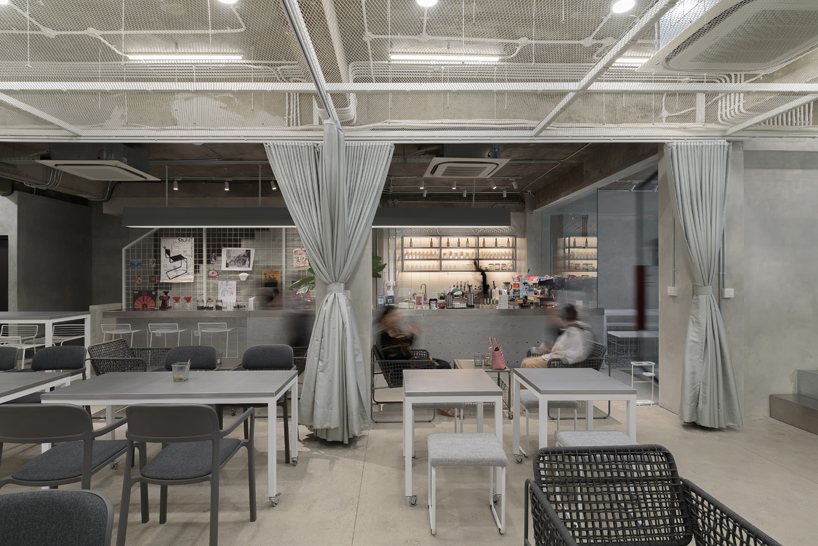 Exterior facelift is part of the design work. To wrap the existing shop house facade, permeable and lightweight material is selected as additional secondary skin. Expanded metal mesh facade from the interior ceiling is consistently used on the facade; the new skin acts as sun shading, which also gives a dematerialized effect on the building. The folded geometry of the facade gives depth and texture on the building which makes it stand out from flat and monotonous row of typical shop houses. The structural steel braces coincidentally resemble the strong diagonal line from Tujuhari logo. Another design strategy for the facade is to expose interior feature to be habitable part of the exterior. Top part of the mini amphitheatre extends out of the facade and becomes outdoor seating for the customer; pushed back shop front gives space for outdoor co- working area and the clerestory window is a spectacle which gives glimpse of what is happening in the productivity chamber.
Exterior facelift is part of the design work. To wrap the existing shop house facade, permeable and lightweight material is selected as additional secondary skin. Expanded metal mesh facade from the interior ceiling is consistently used on the facade; the new skin acts as sun shading, which also gives a dematerialized effect on the building. The folded geometry of the facade gives depth and texture on the building which makes it stand out from flat and monotonous row of typical shop houses. The structural steel braces coincidentally resemble the strong diagonal line from Tujuhari logo. Another design strategy for the facade is to expose interior feature to be habitable part of the exterior. Top part of the mini amphitheatre extends out of the facade and becomes outdoor seating for the customer; pushed back shop front gives space for outdoor co- working area and the clerestory window is a spectacle which gives glimpse of what is happening in the productivity chamber.




